When Do Unilateral Attorney’s Fees Provisions Become Mutual?
By Nicholas F. Labor and Harold R. Bruno III
As seen in ABA’s Forum on Franchising publication – The Franchise Lawyer, Spring 2022 edition
The recovery of attorney’s fees is a consideration in almost every litigation. The prospect of not only paying your own legal fees but also the other party’s fees can deter meritorious claims and influence the course of litigation. Regardless of the forum, issues, or parties, assessing the probability of fee recovery is important.
To tip the scales, some contract drafters shift the risk of an unsuccessful outcome by employing unilateral attorney’s fees provisions. Such unilateral provisions award fees to one party regardless of whether they prevail in the lawsuit:
Should it become necessary for [Company A] to employ an attorney to enforce or defend any provision of this Agreement, [Company B] agrees to pay all expenses so incurred, including reasonable attorney’s fees and costs.
On the other hand, a “mutual,” “bilateral” or “prevailing party” fee-shifting provision awards attorney’s fees to the party who prevails in any lawsuit, regardless of who it is.
An attorney benefiting from a unilateral attorney’s fees provision may be incentivized to aggressively pursue their client’s claims, specious or not, as they have a contractual claim to their fees regardless of outcome. But beware. Courts in many states will blue pencil a unilateral attorney’s fees provision to make it bilateral, such that the “prevailing party” in a contract action can recover fees. Therefore, before an attorney advises his or her client that a unilateral attorney’s fees provision is iron clad, the attorney should first review local law to ensure such a provision is enforceable.
State Statutes
Freedom of contract is the notion that parties are generally free to negotiate their own contract terms without governmental interference. Freedom of contract arises from the due process guaranty against the government taking liberty and property. This freedom is not without limits, however. It is a qualified right subject to a reasonable restraint “in the interest of the public welfare.” Schmidinger v. Chicago, 226 U.S 578, 579 (1913); Chicago, Burlington & Quincy R. Co. v. McGuire, 219 U.S. 549, 550 (1911).
Restraints on unilateral fee provisions differ by state. In some states, courts will convert a unilateral fee provision into a bilateral provision regardless of the type of contract. In other states, courts will intervene only in certain contracts and even then, the level of intervention is disparate. Some states prohibit the attorney’s fees clause entirely while others reform the clause to apply bilaterally.
Seven states have statutes recognizing that unilateral attorney’s fees provisions warrant a restraint on the freedom of contract regardless of the type of contract: California, Cal. Civ. Code § 1717(a); Florida, Fla. Stat. Ann. § 57.105(7); Hawai’i, Haw. Rev. Stat. Ann. § 607-14; Montana, Mont. Code Ann. §28-3-704; Oregon, Or. Rev. Stat. § 20.096(1); Utah, Utah Code Ann. § 78B-5-826; and Washington, Wash. Rev. Code. Ann. § 4.84.330. These statutes apply to nearly all types of contracts and courts will therefore interpret a unilateral attorney’s fees provision as bilateral.
Other state statutes only address unilateral attorney’s fees provisions for specific types of contracts. For example, Connecticut converts unilateral fee provisions into mutual provisions in leases and consumer contracts. Conn. Gen. Stat. Ann. § 42-150bb. New York creates an “implied” covenant making a unilateral fee provision mutual in certain mortgage situations. N.Y. Real Prop. Law § 282. Colorado intervenes in lease agreements to prohibit unilateral fee provisions. C.R.S. § 38-12-801(3)(b). These are but a few of the many state statutes that apply in situations where state legislatures are concerned about unequal bargaining power between contracting parties. These laws are designed to level the playing field and expand consumers’ and individuals’ access to legal representation.
Void Against Public Policy
In the majority of states, a contractual fee-shifting provision need not be mutual to be enforceable. However, courts and arbitration panels will only enforce contractual provisions that do not violate public policy.
For example, in Klein v. Tiburon Development LLC, 405 P.3d 470 (Colo. App. 2017), a lender was contractually entitled to recover its attorney fees and costs if it needed to retain an attorney to collect on the loan. Id. at 476. Despite unambiguous contractual language, the Court stated that “determining who prevailed [in the lawsuit] is critical to resolving the issue of whether enforcing the provision [] violates public policy.” The Court noted that the lender actually lost the predominant part of its claim, and only nominally prevailed on a secondary and uncontested issue. It further found that the lender was sanctioned for frivolous conduct. Thus, it held that “enforcing a unilateral fee shifting provision in favor of a non-prevailing party that itself was sanctioned for frivolous and vexatious conduct would violate public policy.” Id. at 477.
A federal court in Kentucky took a different view when analyzing a unilateral attorney’s fees provision under Kentucky law. In Vasquez v. Paso Fino Horse Ass’n Inc., No. CV 5:18-366-DCR, 2019 WL 3842863, at *3 (E.D. Ky. Aug. 14, 2019), the Court started with the premise that contracts voluntarily made between competent persons would not be set aside lightly. The Court then required “a clear and certain statement of strong public policy in controlling laws or judicial precedent[]” before it would set aside a contractual provision. Id.(quoting State Farm Mut. Auto. Ins. Co. v. Hodgkiss-Warrick, 413 S.W.3d 875, 880 (Ky. 2013)). The Court upheld the unilateral attorney’s fees provision, concluding that the most important function of courts is to enforce and maintain contracts rather than to “enable parties to escape their obligations on the pretext of public policy or illegality.” Id. (quoting Cumberland Valley Contractors, Inc. v. Bell Cnty. Coal Corp., 238 S.W.3d 644, 654 (Ky. 2007)).
The United States Court of Appeals for the Sixth Circuit used yet a third approach, which looked to statutory law to determine whether there was a public policy reason not to enforce a unilateral attorney’s fees provision. Allied Indus. Scrap, Inc. v. OmniSource Corp., 776 F.3d 452 (6th Cir. 2015). The Sixth Circuit observed that absent “direct statutory conflict, Ohio law will generally give effect to such fee-shifting provisions[.]” Id. at 453. The Court found no such conflict in the circumstances of that case, but acknowledged that there are limited “exceptions that prevent parties from contracting around statutory public policy determinations[,]” such as prohibiting fee shifting when it conflicts with foreclosure laws, and denying attorney’s fees that operate to evade usury statutes. Id. at 453.
In the franchise context, a unilateral attorney’s fees provision may be at odds with a franchisee’s right to recover attorney’s fees under their state’s franchise relationship laws. However, the existence of a unilateral attorney’s fees provision in a contract in favor of one party does not necessarily bar the other party from recovering attorney’s fees, to the extent they have some other legal entitlement to recovery. In other words, Courts will not infer a prohibition against the recovery of attorney’s fees “simply because a contract contains a unilateral attorney’s fee provision favorable to another party.” Best Western Int’l Inc. v. Mahroom, No. CV07-00827-PHX-JAT, 2008 WL 2116917, at *2 (D. Ariz. May 20, 2008). In Best Western, a unilateral attorney’s fees provision in a hotel franchise agreement entitling only the franchisor to recover fees from the franchisee did not, by negative implication, prohibit the franchisee from recovering attorney’s fees from the franchisor. Id. The franchisee could recover attorney’s fees by operation of Arizona statutory law despite the unilateral attorney’s fees provision in the franchisor’s favor. Id.
Practice Pointers
A party wishing to utilize a unilateral attorney’s fees provision should begin by researching their local law. The enforceability of a unilateral attorney’s fees provision differs by state. If the party’s state law restrains such a provision, the party may consider a choice of law clause designating another jurisdiction.
The choice of law clause can be the difference between recovering fees or leaving empty handed, as seen in Precision Tune Auto Care, Inc. v. Radcliffe, 815 So. 2d 708, 710 (Fla. Dist. Ct. App. 2002). In Precision Tune, the contract at issue included a Virginia choice-of-law provision but the case was filed in Florida. On one hand, Florida law would extend attorney’s fees to both parties even when the contract provided only a unilateral fees provision. Conversely, Virginia law barred blue penciling a unilateral attorney’s fee provision. Id. at 710. The Court enforced the Virginia choice-of-law clause in the franchise agreement and refused to apply Florida’s reciprocal fee statute because the Court discerned “no Florida policy which would override the parties’ ability to freely contract on the issue of attorney’s fees.” Id. at 710.
A party wishing to enforce a unilateral attorney’s fees provision should also ensure the provision is conspicuously placed in the agreement. The provision could be capitalized, in bold font, or require initials. The drafter should ensure that the non-drafting party has an adequate opportunity to retain counsel and review the agreement. Finally, the drafter should utilize a unilateral prevailing party attorney’s fees provision, allowing it to recover its attorney’s fees but only if it prevails in the lawsuit. Otherwise, the provision could award fees to the defaulting party, making it ripe for a public policy attack.
A party seeking to avoid a unilateral attorney’s fees provision should first see if it conflicts with local law. Even absent a direct statutory conflict, courts often look to the circumstances surrounding the parties’ agreement to determine whether it will uphold the unilateral attorney’s fees provision. Courts look at several factors to determine if a provision is unconscionable. If there is unequal bargaining power between the parties, if the language is hidden in the agreement, or if the provision awards fees to the non-prevailing party, there may be a valid claim of unconscionability. A court will also look at whether one party is unsophisticated and whether that party had an opportunity to ask questions or consult an attorney.
Conclusion
Whether you draft franchise agreements or litigate franchise disputes, the enforceability of a unilateral attorney’s fee provision is crucial. Counsel should look first to their local law, but also understand the inquiry does not end there. While arguments that unilateral fee shifting provisions are unconscionable or void against public policy may seem far-fetched to some, tribunals take them seriously, especially when relative bargaining power appears unequal. Courts and arbitrators will often analyze the parties’ particular circumstances when a unilateral attorney’s fee provision is challenged.








